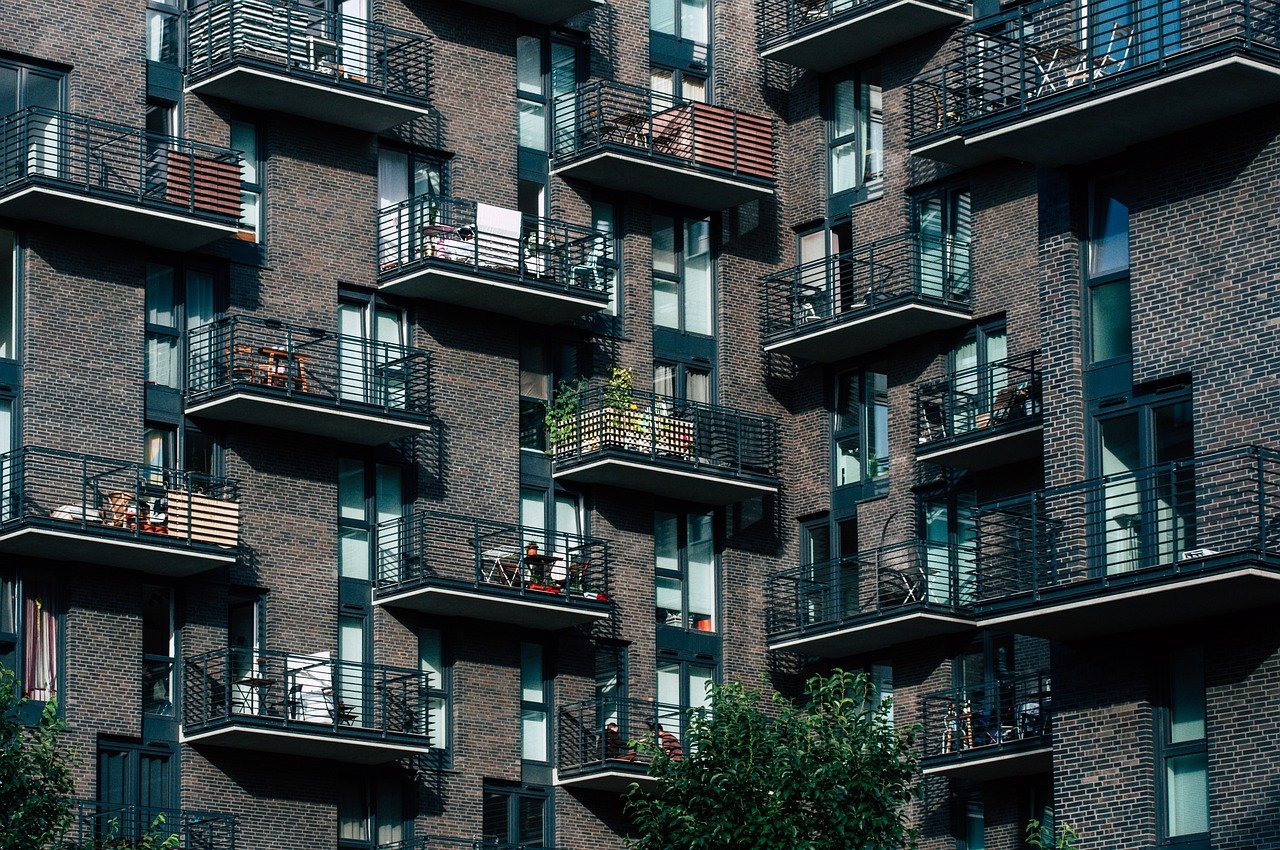Residential block management is all about taking care of apartment buildings or residential complexes.
Think of it like being the manager of a small community. Your job is to ensure everything runs smoothly and residents are happy. This includes handling repairs, keeping the property safe, managing finances, and staying in touch with residents. It’s a mix of being organized, good with people, and having a solid understanding of property management.
Importance of Effective Residential Block Management
When residential block management is done right, it benefits everyone. Residents live in a well-maintained, safe environment, and property values tend to stay higher. Good management means fewer complaints and a happier community. It’s not just about fixing things when they break; it’s about preventing problems before they happen and making sure everything is up to standard.
Understanding Residential Block Management
Key Components of Residential Block Management
Effective residential block management involves several key components. Maintenance is a big one – keeping the building and its systems in good working order. Financial management is another crucial part, involving everything from budgeting to handling service charges. Legal compliance and health and safety are also vital, ensuring the building meets all relevant laws and standards. Lastly, good communication with residents is essential for a smooth-running community.
Responsibilities of Block Managers
Block managers have a lot on their plate. They oversee the day-to-day operations of the building, coordinate with contractors for maintenance and repairs, and manage staff. They also handle the finances, making sure everything is accounted for and service charges are managed properly. Ensuring the property complies with legal and safety standards is another critical responsibility. And of course, they need to be available to address any issues or concerns from residents, keeping everyone informed and satisfied.
Residential Block Management Services
Overview of Essential Services
Residential block management services cover a wide range of tasks aimed at keeping the property in top shape. These services include regular maintenance, financial oversight, legal compliance, and effective communication with residents. By covering all these bases, block management services help ensure that the building remains a safe and pleasant place to live.
Maintenance and Repairs
Regular maintenance and timely repairs are the backbone of good residential block management. This means everything from fixing a leaky roof to ensuring the elevators are working correctly. Preventive maintenance is also important – taking care of small issues before they become big problems can save a lot of time and money in the long run.
Financial Management
Handling the finances of a residential block is a big responsibility. This includes creating and managing budgets, handling service charges, and ensuring financial transparency. Good financial management helps keep everything running smoothly and avoids any unpleasant surprises.
Legal Compliance and Health & Safety
Keeping the property in line with all relevant laws and safety standards is crucial. This means staying updated on regulations and ensuring everything from fire safety measures to general building standards are met. It’s about protecting the residents and the property itself.
The Role of Block Managers
Day-to-Day Responsibilities
Block managers are the go-to people for anything related to the property. They handle everyday tasks like coordinating repairs, managing staff, and ensuring everything runs smoothly. They also need to be good at multitasking and staying organized.
Skills and Qualities of Effective Block Managers
Good block managers are organized, communicative, and knowledgeable about property management. They need to be good problem solvers and able to handle various issues that may arise. They also need to be approachable and good with people since they deal with residents regularly.
Communication and Conflict Resolution
Effective communication is key to good residential block management. Block managers need to keep residents informed about any changes or issues and be available to listen to their concerns. Conflict resolution skills are also important – handling disputes calmly and fairly helps maintain a positive community atmosphere.
Residential Block and Estate Management
Differences Between Block and Estate Management
While residential block management focuses on managing a single building or complex, estate management involves overseeing multiple buildings or larger areas, including communal spaces like parks and walkways. Estate management requires a broader approach, ensuring that all parts of the estate are well-maintained and functional. This means dealing with more diverse issues and often coordinating with a larger team.
Integrating Estate Management with Block Management
Combining block and estate management can be very beneficial. By integrating both, you can ensure that all areas, whether it’s individual buildings or shared spaces, are managed consistently and efficiently. This holistic approach helps create a cohesive living environment where residents feel taken care of, no matter where they are on the property. Good communication and organization are key to making this integration work smoothly.
Choosing the Right Block Management Services
What to Look for in a Service Provider
Choosing the right block management service provider is crucial. Look for a company with a solid track record and positive reviews from other clients. They should offer a comprehensive range of services, from maintenance to financial management, and be transparent about their fees. It’s also important that they are knowledgeable about the latest regulations and best practices in property management.
Questions to Ask Potential Block Managers
When interviewing potential block managers, ask about their experience managing similar properties. Find out what specific services they offer and how they handle emergencies. It’s also a good idea to ask for examples of how they’ve successfully managed challenges in the past. Make sure they can provide clear, detailed explanations of their fee structure and what is included in their services.
Evaluating Service Contracts
Before signing a contract, carefully review the terms to ensure you understand what services are included and what fees you’ll be paying. Look for any hidden costs and clarify any points that are unclear. It’s also wise to check if there are any penalties for terminating the contract early and what kind of support you can expect during the transition period.
Best Practices for Effective Block Management
Regular Inspections and Preventive Maintenance
Conducting regular inspections is a best practice in block management. This helps catch small issues before they become big problems, saving time and money in the long run. Preventive maintenance, such as servicing elevators regularly and checking fire alarms, keeps everything in working order and ensures the safety of residents.
Transparent Financial Reporting
Transparency in financial reporting builds trust with residents. Providing clear and detailed financial reports helps everyone understand where their money is going. It also ensures that the block management team is held accountable for their financial decisions.
Proactive Communication with Residents
Good communication is essential for smooth block management. Keep residents informed about any upcoming maintenance, changes in services, or important updates. Using multiple channels like emails, newsletters, and notice boards can help ensure everyone stays in the loop. Being proactive about communication helps prevent misunderstandings and keeps the community informed and engaged.
Ensuring Compliance with Regulations
Staying compliant with all relevant laws and regulations is a non-negotiable part of block management. This includes health and safety standards, building codes, and other local regulations. Regularly reviewing and updating practices to align with current laws helps protect the property and its residents from potential legal issues.
Technology in Residential Block Management
Digital Tools and Platforms
Modern technology offers many tools and platforms that can make block management more efficient. These tools help with tasks like scheduling maintenance, managing finances, and communicating with residents. For example, property management software can streamline many administrative tasks, making it easier to keep everything organized.
Benefits of Automation in Block Management
Automation can significantly improve the efficiency of block management. Automated systems can handle routine tasks like sending reminders for maintenance, processing payments, and updating financial records. This reduces the risk of human error and frees up time for block managers to focus on more complex issues.
Case Examples of Technology Implementation
Many residential blocks are already using technology to improve their management practices. For instance, some properties use online portals where residents can report issues, make payments, and access important documents. Other buildings have implemented automated lighting and security systems that improve safety and reduce energy costs. These examples show how technology can enhance the management of residential blocks.
Challenges in Residential Block Management
Common Issues Faced by Block Managers
Block managers often deal with a range of challenges. Common issues include handling complaints from residents, managing maintenance problems, and staying on top of financial tasks. Ensuring compliance with ever-changing regulations can also be tricky. Balancing these responsibilities requires good organization and strong problem-solving skills.
Strategies to Overcome These Challenges
To tackle these challenges effectively, block managers need to be proactive.
Regular communication with residents helps prevent misunderstandings. Keeping up with regular maintenance schedules can avoid costly repairs. Staying informed about the latest regulations ensures compliance and prevents legal issues. Additionally, leveraging technology can streamline many tasks, making the job easier and more efficient.


